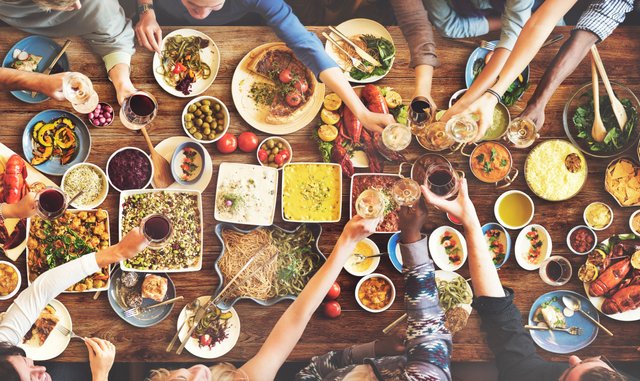
Introduction
It would seem fairly obvious that our diets have a big effect on both our mental and physical health. It is therefore surprising that this is something that has not been studied in a lot of depth until recently.
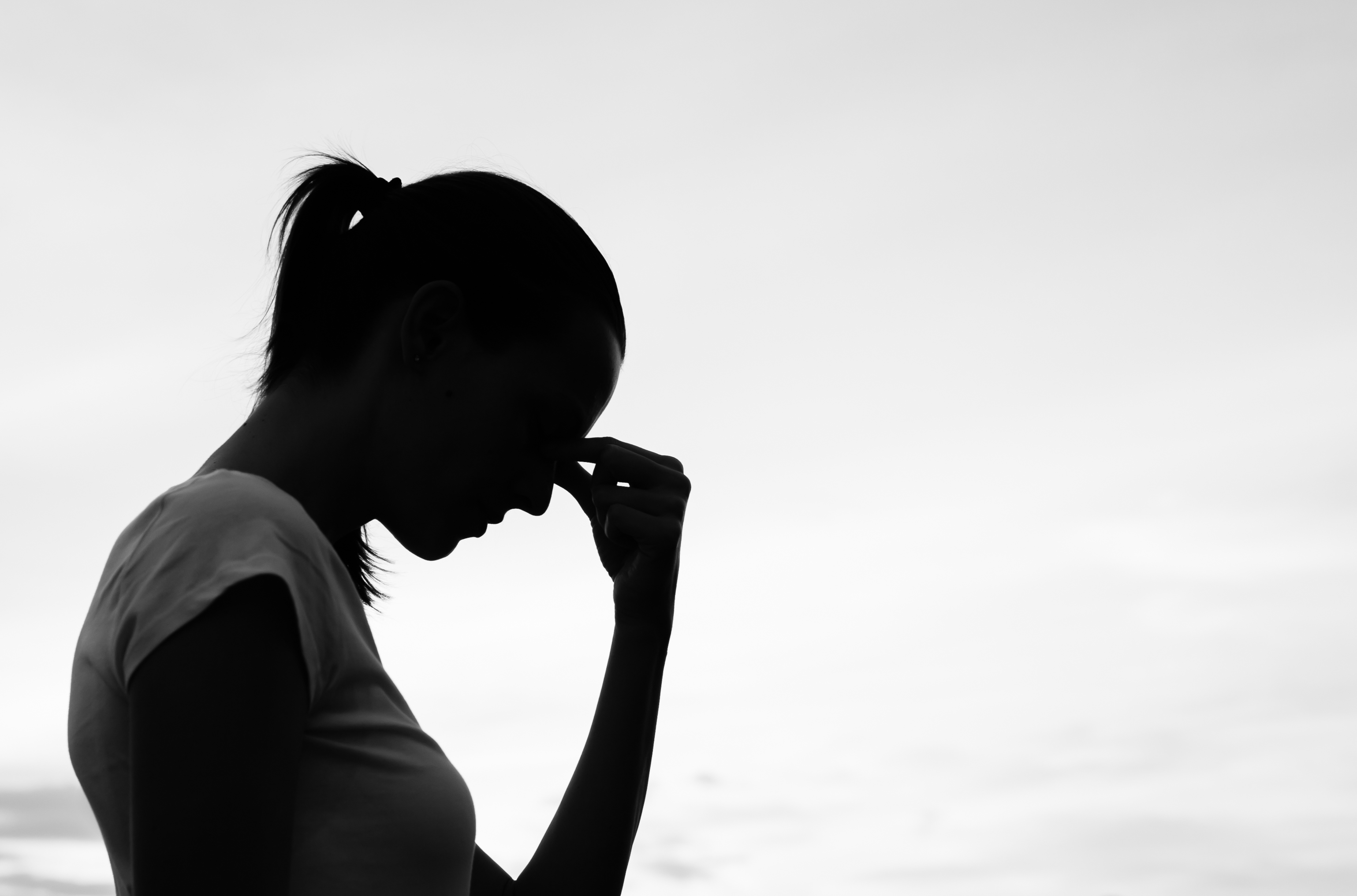
Most older research takes account of specific dietary deficiencies and their effects on mental and physical health.
It is only in recent decades that there has been more consideration of overall dietary quality and it's relationship to conditions like depression.
It is something I am interested in because I think it not only relates to overcoming nutritional deficiencies but is also likely tied in to one of contemporary medicine's hot topics - the microbiome (bacteria in your gut) and its relation to health and disease.
A new study by Jacka et al [1] suggests that intervention by a dietician to help improve the diets of people suffering from depression can help to improve their symptoms.
This is an open access study and you can read/download it here.
Methods
This is described as a single blind randomised control trial (RCT).

Participants were recruited using a variety of methods including advertising on flyers and in social media (pg. 3) which stated:
‘We are trialling the effect of an educational and counselling program focusing on diet that may help improve the symptoms of depression’.
There were a number of inclusion criteria which you can read in the paper on page 3.
These included that participants were over 18, qualified for having major depression (using the MADRS and DSM IV criteria), and had a low score on a dietary rating scale.
After exclusions the final sample included 67 participants.
This was split into two groups an intervention group and a control group which were randomised via computer. Both groups received dietary and psychological assessments.
Once deemed to be eligible, participants completed a 7-day food diary and the Cancer Council of Victoria food frequency questionnaire, in the week leading up to baseline assessment. Participants attended a local pathology clinic to provide fasting blood samples before undertaking baseline assessment and randomisation.
The intervention group received sessions with a dietician (seven sessions of 60 minutes each). The control group received "social support" called a "befriending" protocol of equal duration and frequency:
Befriending consists of trained personnel discussing neutral topics of interest to the participant, such as sport, news or music, or in cases where participants found the conversation difficult, engaging in alternate activities such as cards or board games, with the intention of keeping the participant engaged and positive. This is done without engaging in techniques specifically used in the major models of psychotherapy.
This makes sense - you want the control to replicate the intervention as much as possible but without introducing any alternative factors which might themselves be treating depression (e.g. psychotherapy) and hence diluting the results.
The total length of the interventions was 12 weeks and participants were re-assessed on completion.
Results
The main results are summarised very well by Figure 2 (see below).
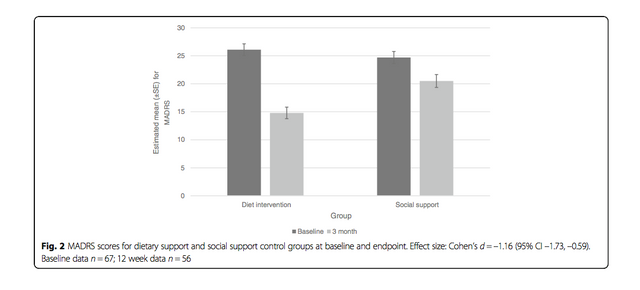
If we look at the graph we can see that there is a larger proportional decrease in MADRS scores for the intervention group (left columns) versus the control (social support) group.
As the authors state:
"The dietary support group demonstrated significantly greater improvement in MADRS scores between baseline and 12 weeks than the social support control group."
There were dropouts before completion of the 12 week interventions (roughly 16%). It is of interest that the dropout rate was greater in the control group:
"There were significantly more completers in the dietary support group (93.9%, n = 31) than the social support control group (73.5%, n = 25)."
Some further secondary outcomes such as how many patients were considered to be in a state of remission from depression were also considered and showed favourable results for the dietary intervention:
"At 12 weeks, 32.3% (n = 10) of the dietary support group and 8.0% (n = 2) of the social support control group achieved remission criteria of a score less than 10 on the MADRS."
There were also some improvements on some secondary rating scales that were used:
"Concordant with the findings for the MADRS, the dietary support group demonstrated significantly greater improvement from baseline to 12 weeks than the social support control group on the Hospital Anxiety and Depression Scale (HADS)-depression subscale."
"Similar findings were obtained with the HADS-anxiety subscale."
"These significant differences remained after controlling for sex, education, physical activity, baseline BMI and baseline ModiMedDiet scores."
Finally there were significant dietary improvements measured in the active intervention group - I won't list them here but they are on page 8 of the paper.
Problems
For reasons of space (and so I don't bore everyone to death) I can't cover everything here but I will cover the main things that stood out to me.
We have some of the usual suspects when it comes to these kind of studies.
Blinding
.jpg)
Blinding is obviously difficult in a study of this sort - there is no obvious way of blinding the participants to the treatment they were receiving.
A partial attempt was made by giving them limited information at recruitment but this can be ethically problematic.
Further the people administering the actual treatment itself cannot be blinded either for obvious reasons.
Although this is referred to as a single blind study the blinding referred to was applied to the research staff who made the data collection and the statistician who analysed the results.
I'm not sure if that really counts as true single blinding (which one would assume being applied to those giving or receiving the treatment).
The interesting thing is that the actual definition of single blinding is a matter of debate in medical research. This BMJ article by Altman[2] summarises some of the issues and suggests that the term should not be used.
Sample

As the authors state regarding their sample:
We assessed 166 individuals for eligibility. Of these, 99 were excluded. We thus randomised 67 individuals with MDD to the trial (intervention, n = 33; social support control, n = 34)
The sample size is obviously very small. It is understandable given the nature of the interventions (and cost implications) that a larger sample size would not necessarily be possible.
The exclusion criteria are listed on page 3 and do make sense but as we can see the final sample size shrank down from 166 to 67. That is not the whole story though as there were also some dropouts:
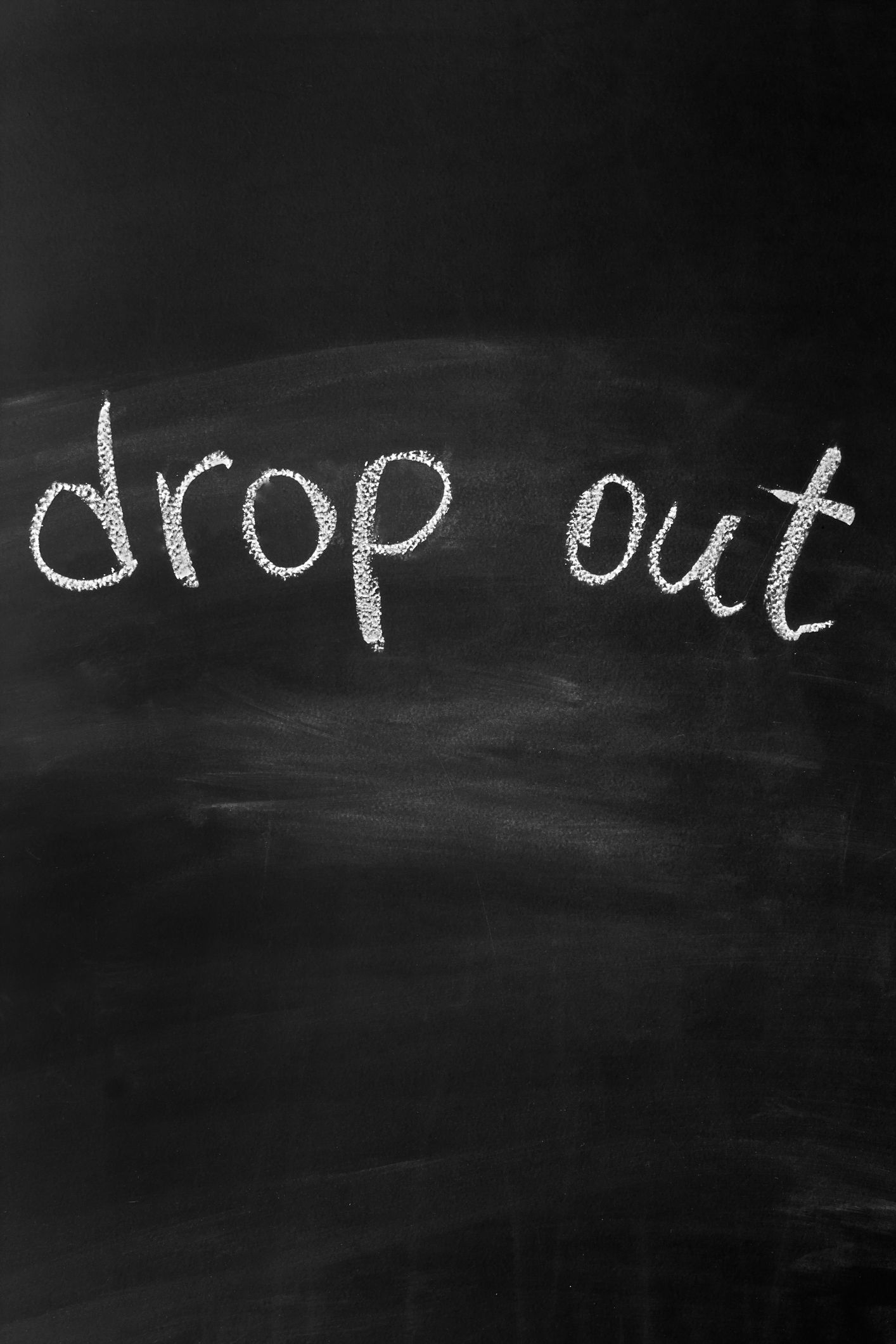
Dropouts
Of these 67 only 83.67% completed the final assessment at 12 weeks:
Fifty-six individuals (83.6%) completed the assessment at the 12-week endpoint.
The problem (as I have discussed many times before)with many such studies is lack of replicability and smaller sample sizes increase the risk of anomalous results being observed.
Drop-outs are always likely but they can further skew results and the effect is amplified by having smaller sample sizes.
What if there were certain characteristics of the dropout group that made them resistant to treatment (or alternatively more amenable)? Either way it can skew the results.
Dietary assessment
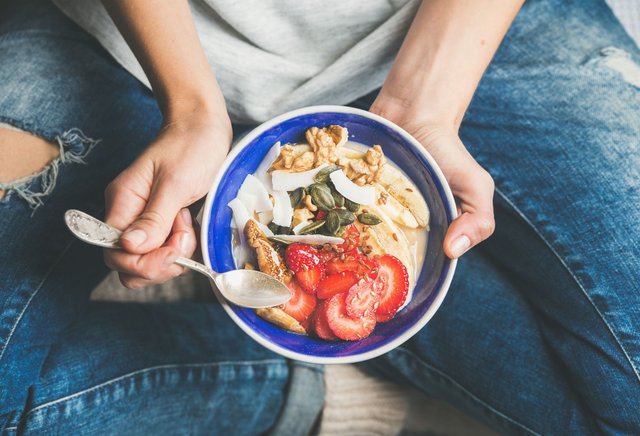
Dietary assessment involved use of food diaries and interviews.
I have previously talked about how there are questions as to how accurate such methods can be at assessing what people actually eat.
It is easy for people to forget certain things or leave out others which they think might show them in a bad light - particularly in an interview situation.
Other Confounding Factors
.jpg)
Another factor to consider is the interaction of these interventions with other things - for example medication and other psychological interventions.
If we look at Table 1 (page 7 of the study) we can see that 68.7% of the participants were on medication and 44.8% were receiving psychological therapy at baseline.
This can potentially make it hard to be sure how much of the effect we are seeing is due to the actual intervention we are testing here (the dietary support) versus the effects of these other treatments.
It should also be noted that 71.6% of participants were female.
This kind of gender imbalance can also change the applicability of results.
Food Cost
.jpg)
Obviously one could consider that sending patients to see a dietician is expensive. One other factor that I thought of and is briefly discussed is the cost of the healthier diet (versus their old diet for the patient):
Whilst there are many data to suggest that eating a more healthful diet is more expensive than a less healthful diet [45], our detailed modelling of the costs of 20 of the SMILES participants’ baseline diets compared to the costs of the diet we advocated showed that our strategy can be affordable [46]. Indeed, we estimated that participants spent an average of AU$138 per week on food and beverages for personal consumption at baseline, whilst the costs per person per week for the diet we recommended was AU$112 per week, with both estimations based on mid-range product costs.
I think "affordable" depends on the situation of the patient in question.
Someone who is barely able to make ends meet might not be able to afford the extra 23% cost.
It would be interesting to know if this particular factor resulted in some people being unable to adhere to the diet as much as they would have liked.
Conclusion
These results are certainly interesting. They fit with what we would expect BUT we also need to be cautious.
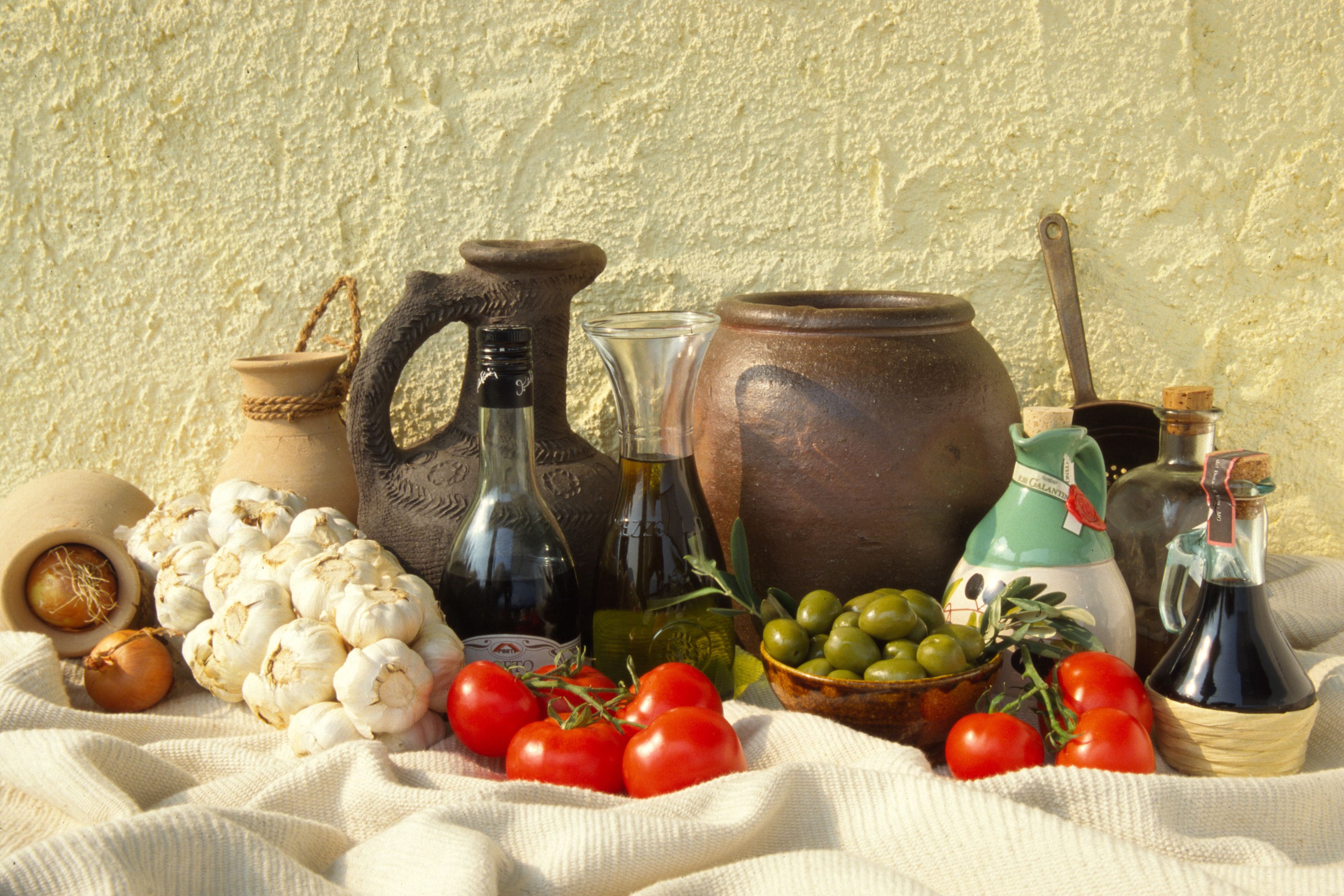
When results fit with our prior expectations, it increases the temptation to give them more weight.
We need to consider these results in the context of the study. The sample size is small and there are other factors which may skew the results.
I know I say this very often, but we need more research to see if these results can be replicated - ideally in larger sample sizes but failing that in multiple small studies.
Obviously there is no harm in improving people's diets but the particular intervention here via a dietician is likely to be quite expensive and time consuming.
Money and resources for medical care tend to be limited in the real world.
Public health interventions often come down to choosing between a multitude of different treatments based on the relative cost:benefit ratio.
We will need more research before we can make an informed decision in this case.
References
Jacka, Felice N., Adrienne O’Neil, Rachelle Opie, Catherine Itsiopoulos, Sue Cotton, Mohammedreza Mohebbi, David Castle, et al. 2017. “A Randomised Controlled Trial of Dietary Improvement for Adults with Major Depression (the ‘SMILES’ Trial).” BMC Medicine 15 (1): 23.
Altman, Douglas G. 2005. “What Is a Single Blind Trial?” British Medical Journal, no. 331 (July): 1.
Thank you for reading
.jpg)
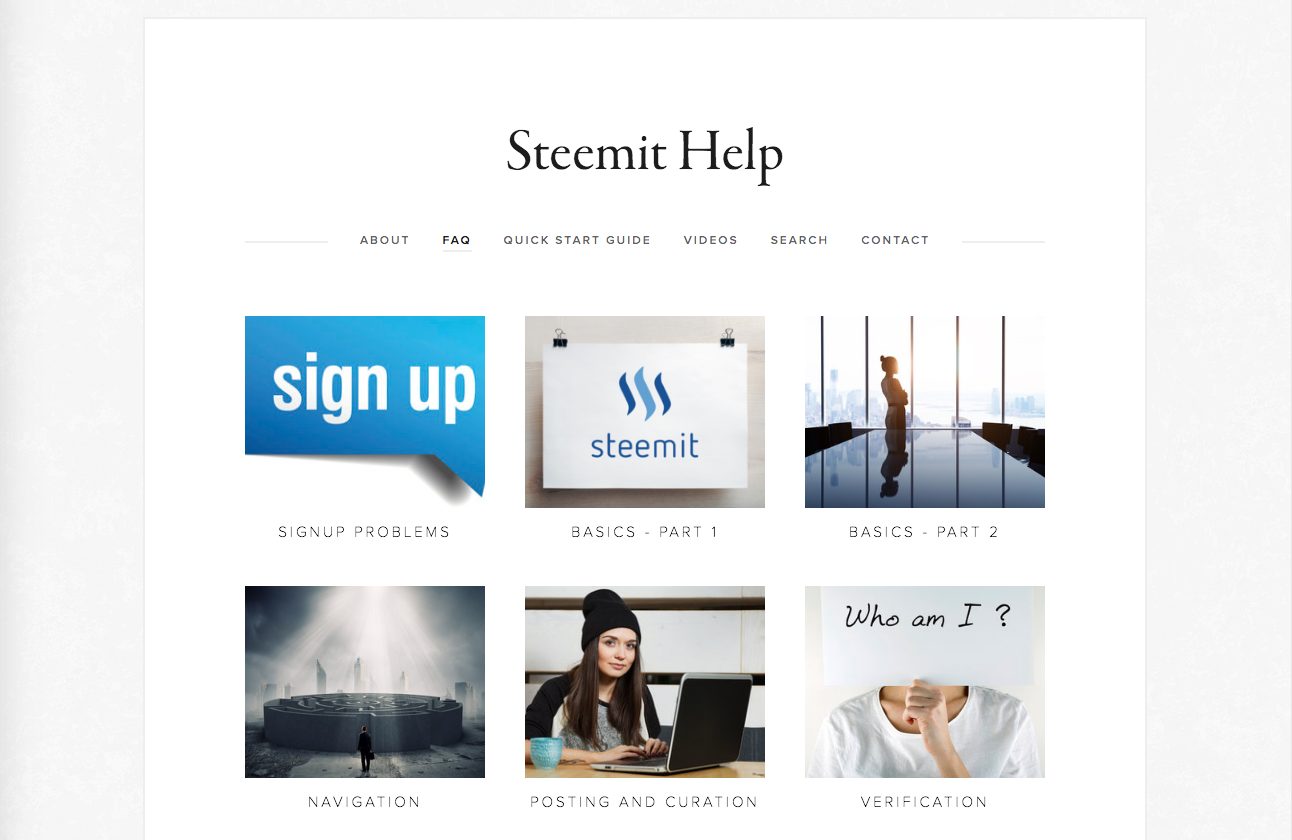
True... healthy foods can prevent and cure many diseases, one must never compromise on consulting a dietitian , even though they are expensive, because good health is actual wealth.
Downvoting a post can decrease pending rewards and make it less visible. Common reasons:
Submit
Yes absolutely.
Downvoting a post can decrease pending rewards and make it less visible. Common reasons:
Submit
With 68% on medication its a chicken/egg problem. Would they eat better or worse if they were on/off medication? 71% of the group were also female..
No doubt healthy eating allows our body to operate at its best - but to what extent?
Downvoting a post can decrease pending rewards and make it less visible. Common reasons:
Submit
Really good points. I think the problem is in finding people who have major depression but aren't on medication - there may be ethical issues and risks (e.g. suicide) but it does muddy the waters. Also the gender imbalance seems to be very common - not quite sure why.
Downvoting a post can decrease pending rewards and make it less visible. Common reasons:
Submit
It would be hard to find someone with major depression who has the energy to participate in a clinical trial. Very difficult disease to treat... I agree with the meat your post. It might be hard to do an accurate trial on this issue but I dont think you need a clinical trial to extol the benefits of exercise and diet. Excellent writing as always :)
Downvoting a post can decrease pending rewards and make it less visible. Common reasons:
Submit
Thanks another great point! Thank you for your kind words.
Downvoting a post can decrease pending rewards and make it less visible. Common reasons:
Submit
I think the increased cost of the food to eat healthy plays a significant role in many people's decision. So many people live paycheck to paycheck and cannot afford (or think they cannot afford) to eat healthy.
Downvoting a post can decrease pending rewards and make it less visible. Common reasons:
Submit
I agree, the cost of biological and organic food is x2 or x3 times more expensive
Downvoting a post can decrease pending rewards and make it less visible. Common reasons:
Submit
The increased costs I feel are over blown. When looking at healthy foods, the cost goes down dramatically if the person is cooking and preparing the food themself. One of the big barriers i see is not enough people know how to cook for themself, if we can teach them to cook costs would be significantly reduced. That is the case in terms of food cost in my area.
Downvoting a post can decrease pending rewards and make it less visible. Common reasons:
Submit
Yes if people cook themselves the costs are most definitely less. In our area, an organic can of corn is around $.30 more. Organic chicken is nearly 40% more expensive per pound
Downvoting a post can decrease pending rewards and make it less visible. Common reasons:
Submit
Ahh I see, I was thinking of a more drastic comparison such as buying fast food to buying a whole chicken to prepare; not neccesarily organic to non-organic.
Downvoting a post can decrease pending rewards and make it less visible. Common reasons:
Submit
Oh yeah! You are definitely right with eating out!! I feel like restaurants have never been more crowded - steakhouses, fast foods, etc.
Downvoting a post can decrease pending rewards and make it less visible. Common reasons:
Submit
Completely agree. I know before I met my wife I would do nothing but eat out for convenience. Since we started cooking together the food bill is almost 60% less!
Downvoting a post can decrease pending rewards and make it less visible. Common reasons:
Submit
That is quite an improvement!! If only everyone could do that!
Downvoting a post can decrease pending rewards and make it less visible. Common reasons:
Submit
Good point. I think we have a tendency to be lazy too - basically we want it all prepared and ready for us!
Downvoting a post can decrease pending rewards and make it less visible. Common reasons:
Submit
Completely agree. Our Go Go Go lifestyles just don't accomodate taking the time to make something for ourselves.
Downvoting a post can decrease pending rewards and make it less visible. Common reasons:
Submit
Sadly yes.
Downvoting a post can decrease pending rewards and make it less visible. Common reasons:
Submit
Hello @mk40 if you liked this post please check out my first food blog post. It would be greatly appreciated, thank you :)
Downvoting a post can decrease pending rewards and make it less visible. Common reasons:
Submit
I think you are right. Particularly these days cost is a big issue and people are struggling.
Downvoting a post can decrease pending rewards and make it less visible. Common reasons:
Submit
If people give up cable tv or gave up their iPhones or one other luxury then they would be able to use this extra money to purchase the healthier foods!
Downvoting a post can decrease pending rewards and make it less visible. Common reasons:
Submit
Good point but how many people can do that?
Downvoting a post can decrease pending rewards and make it less visible. Common reasons:
Submit
Virtually zero..
Downvoting a post can decrease pending rewards and make it less visible. Common reasons:
Submit
If you know the story that is Rocky-fellow medicine, then this is not surprising at all.
The food pyramid was brought to us by the big food industry, and is a recipe for killing people.
Nutritionists are finally starting to accept that there are multiple body types that require different food groups to be their healthiest.
What scares me most is that we still use the term calorie when discussing food.
Downvoting a post can decrease pending rewards and make it less visible. Common reasons:
Submit
Nice to hear from you mate! Yes the food lobby (along with their paid fake science shills) and also at times various other groups have put business interests ahead of public health (not really new I know). I think there have been various discussions about a better alternative to calories but there has been no resolution yet.
Downvoting a post can decrease pending rewards and make it less visible. Common reasons:
Submit
The calorie is just so fucking convenient. Its a number. Its easy to compute. Its easy to track...
And there is nothing equivalent anywhere to be seen.
A cucumber grown organically in your yard.
A cucumber grown in a local farm.
A cucumber gown half way around the world.
These three look identical, and have the exact same calories.
But, current nutritionists are finding their nutrition values wildly different.
Eating foods grown locally seems to be very important. Many surmise that it has to do with the local magnetic vibration, and the foods grown in it are much more nourishing for your body.
... so, anyway, I look forward to real studies of food and real studies of healthy people. We have done too much research into what is wrong in diets, and almost none in what is right in diets. It would seem obvious that if we want to know what is healthy, start finding healthy people and correlate their diets with body types.
Downvoting a post can decrease pending rewards and make it less visible. Common reasons:
Submit
Yes very good points. I try to buy local stuff now but it is not always as convenient as buying something from half way round the world which is quite crazy to think about.
Downvoting a post can decrease pending rewards and make it less visible. Common reasons:
Submit
Congratulations @thecryptofiend!
Your post was mentioned in my hit parade in the following category:
Downvoting a post can decrease pending rewards and make it less visible. Common reasons:
Submit
Clinical depression (not a teenage one) is highly related to genetics and chemical disorders inside the individiuals central nervous system. It is treated with SSRI's and other anti-depressants. I don't know if a diet could help long-term but throwing junk food helps even if you don't have a depresssion.
Downvoting a post can decrease pending rewards and make it less visible. Common reasons:
Submit
Yes I get what you are saying. Genetics are certainly important but there are other factors at work too. We don't fully understand the mechanisms underlying it or how big each contributory factor is. I suspect it will vary from person to person. That's we we need to keep researching.
Downvoting a post can decrease pending rewards and make it less visible. Common reasons:
Submit
I've been telling people this for years. People are what they eat!
Downvoting a post can decrease pending rewards and make it less visible. Common reasons:
Submit
Yes.
Downvoting a post can decrease pending rewards and make it less visible. Common reasons:
Submit
Its a shame people dont listen though.......
Downvoting a post can decrease pending rewards and make it less visible. Common reasons:
Submit
I think they do but then they go off and eat what they crave which is not necessarily good!
Downvoting a post can decrease pending rewards and make it less visible. Common reasons:
Submit
I actually am in the process of changing to a ketogenic diet. Let's see how I hold up! haha I enjoy a good beer and sweets from time to time... sacrifices, sacrifices...
Downvoting a post can decrease pending rewards and make it less visible. Common reasons:
Submit
That is tough to stick to.
Downvoting a post can decrease pending rewards and make it less visible. Common reasons:
Submit
I agree.. but a cheat day here and there won't hurt... I'm looking forward to mine already.. been 2 weeks :/
Downvoting a post can decrease pending rewards and make it less visible. Common reasons:
Submit
Hello @costafafs if you liked this post please check out my first food blog post. It would be greatly appreciated, thank you :)
Downvoting a post can decrease pending rewards and make it less visible. Common reasons:
Submit
Also, I've resteemed!
Downvoting a post can decrease pending rewards and make it less visible. Common reasons:
Submit
Thank you!
Downvoting a post can decrease pending rewards and make it less visible. Common reasons:
Submit
Hello @rhino if you liked this post please check out my first food blog post. It would be greatly appreciated, thank you :)
Downvoting a post can decrease pending rewards and make it less visible. Common reasons:
Submit
Interesting post. I believe a good diet is essential to good well rounded health.
Downvoting a post can decrease pending rewards and make it less visible. Common reasons:
Submit
Yes I agree! Thank you!
Downvoting a post can decrease pending rewards and make it less visible. Common reasons:
Submit
There are so many benefits of taking a good diet, unfortunately most of us don't take it seriously enough...
Downvoting a post can decrease pending rewards and make it less visible. Common reasons:
Submit
Yes I think you are right.
Downvoting a post can decrease pending rewards and make it less visible. Common reasons:
Submit
u can try apple pectin which relieves depression and tense. Apple pectin tablets are easier to swallow
Downvoting a post can decrease pending rewards and make it less visible. Common reasons:
Submit
I have not heard of that. Would need to see some RCT before I would believe it.
Downvoting a post can decrease pending rewards and make it less visible. Common reasons:
Submit
it derived from apple, should be safe to try
Downvoting a post can decrease pending rewards and make it less visible. Common reasons:
Submit
Yes of course. It would be useful to know if it actually works though by doing studies.
Downvoting a post can decrease pending rewards and make it less visible. Common reasons:
Submit
thx
Downvoting a post can decrease pending rewards and make it less visible. Common reasons:
Submit
I found this post informative therefore I shared it on twitter. https://twitter.com/MrLucasHunter/status/871376689410043904
Downvoting a post can decrease pending rewards and make it less visible. Common reasons:
Submit
Disclaimer: I am just a bot trying to be helpful.
Downvoting a post can decrease pending rewards and make it less visible. Common reasons:
Submit
Thank you so much!
Downvoting a post can decrease pending rewards and make it less visible. Common reasons:
Submit
You are what you eat!
Downvoting a post can decrease pending rewards and make it less visible. Common reasons:
Submit
Yes.
Downvoting a post can decrease pending rewards and make it less visible. Common reasons:
Submit
I agree the less crap the better
Downvoting a post can decrease pending rewards and make it less visible. Common reasons:
Submit
There is a reason there are terms like "soul food," and "brain food." I can totally see how there is a direct link between diet and depression. And I was just discussing with a friend yesterday about the extra expenses of buying healthier food. That is a definite factor of people's diet and, therefore, health.
Great research!
Downvoting a post can decrease pending rewards and make it less visible. Common reasons:
Submit
Thank you. I think you are right. Also I love Soul Food!
Downvoting a post can decrease pending rewards and make it less visible. Common reasons:
Submit
Soul Food, that's a direction I haven't gone yet. I will add it to my horizon, great suggestion
Downvoting a post can decrease pending rewards and make it less visible. Common reasons:
Submit
Cool!
Downvoting a post can decrease pending rewards and make it less visible. Common reasons:
Submit
Really good post. Thanks for sharing. 95 % of our serotonin production comes from the gut. That's why diet is so important. 95 %?! Thats insane!
Downvoting a post can decrease pending rewards and make it less visible. Common reasons:
Submit
Don't know if it is 95% but it is quite high - a lot of it seems to be mediated by bacteria in the gut.
Downvoting a post can decrease pending rewards and make it less visible. Common reasons:
Submit
Very informative post. I totally agree with you .But many people give more importance for the taste than the nutritive value of food.
Downvoting a post can decrease pending rewards and make it less visible. Common reasons:
Submit
Yes - sadly I am one of them quite often! The short pleasure of taste can overwhelm the long term value of good health.
Downvoting a post can decrease pending rewards and make it less visible. Common reasons:
Submit
Anyway that was a good article.
Downvoting a post can decrease pending rewards and make it less visible. Common reasons:
Submit
Thanks!
Downvoting a post can decrease pending rewards and make it less visible. Common reasons:
Submit
No doubt it will. A better diet could solve a lot of problem.
Downvoting a post can decrease pending rewards and make it less visible. Common reasons:
Submit
It certainly makes sense.
Downvoting a post can decrease pending rewards and make it less visible. Common reasons:
Submit
I appreciate you and what you have said it true. I am Dr Augustine Joseph
naturopath. from India.
Downvoting a post can decrease pending rewards and make it less visible. Common reasons:
Submit
Cool thanks!
Downvoting a post can decrease pending rewards and make it less visible. Common reasons:
Submit
I truly agree with this ,the right food also enhances our mood;)
Downvoting a post can decrease pending rewards and make it less visible. Common reasons:
Submit
Hello @fernwehninja if you liked this post please check out my first food blog post. It would be greatly appreciated, thank you :)
Downvoting a post can decrease pending rewards and make it less visible. Common reasons:
Submit
I have heard it before too and it seems to make sense. Hopefully we will get more firm evidence to back it up and replicate this data.
Downvoting a post can decrease pending rewards and make it less visible. Common reasons:
Submit
that's great , would take a long researh i guess , but it's worth it ;-))
Downvoting a post can decrease pending rewards and make it less visible. Common reasons:
Submit
Yes I think so.
Downvoting a post can decrease pending rewards and make it less visible. Common reasons:
Submit
Great article @thecryptofiend. I like reading these more scientifical blog posts every once in a while. I have also found light to help a lot with your mood. The company Philips did a study in the northern european countries about depression due to lack of light. Out of this they made the wake up lights (a lot of companies have them now). It helps your mood even if you are not depressed.
Downvoting a post can decrease pending rewards and make it less visible. Common reasons:
Submit
Thanks! Yes I have actually used a Philips light box for many years as I tend to get a bit down on the short days in winter.
Downvoting a post can decrease pending rewards and make it less visible. Common reasons:
Submit
Same here! They really help out. I recently bought a new one that functions as an alarm clock. It also makes relaxing forest sounds. I have never woken up more relaxed than since i have this crazy alarm. Wierd how sometimes the little things make such a big difference.
Downvoting a post can decrease pending rewards and make it less visible. Common reasons:
Submit
Yes.
Downvoting a post can decrease pending rewards and make it less visible. Common reasons:
Submit
Perfect your post..
Number one is the best 👏👍
Downvoting a post can decrease pending rewards and make it less visible. Common reasons:
Submit
Thank you!
Downvoting a post can decrease pending rewards and make it less visible. Common reasons:
Submit
You are welcome ^_^
Downvoting a post can decrease pending rewards and make it less visible. Common reasons:
Submit
:)
Downvoting a post can decrease pending rewards and make it less visible. Common reasons:
Submit
A very interesting post. I reesteem it .
Downvoting a post can decrease pending rewards and make it less visible. Common reasons:
Submit
Thank you!
Downvoting a post can decrease pending rewards and make it less visible. Common reasons:
Submit
This is so true, 100% true even though youre emotional eater. You tend to follow what it needs to be followed for your body to cope up physically and mentally.
Downvoting a post can decrease pending rewards and make it less visible. Common reasons:
Submit
I think some people self medicate with certain foods when they are down. I crave sugar more.
Downvoting a post can decrease pending rewards and make it less visible. Common reasons:
Submit
thanks for your information. Useful.
I would refer to my friend and hope to help with his situation.
Downvoting a post can decrease pending rewards and make it less visible. Common reasons:
Submit
Cool I hope he gets well. I would recommend expert advice if he is really depressed - they will be able to assess if he needs further treatment and could also refer to a dietician if he is interested in pursuing that.
Downvoting a post can decrease pending rewards and make it less visible. Common reasons:
Submit
Perfect timing! Guess what I'm adding to STP notes. :)
Downvoting a post can decrease pending rewards and make it less visible. Common reasons:
Submit
Thanks mate!
Downvoting a post can decrease pending rewards and make it less visible. Common reasons:
Submit
Wonderful post! I think it also comes down to the resistance we give to the depression. A lot of us are resisting the bad feelings, and if so, we are not learning or healing from it. It will be stuck with us, until it shows itself again.
Downvoting a post can decrease pending rewards and make it less visible. Common reasons:
Submit
That is why I believe mindfulness meditation can be useful.
Downvoting a post can decrease pending rewards and make it less visible. Common reasons:
Submit
Yes, indeed. Very powerful!
Downvoting a post can decrease pending rewards and make it less visible. Common reasons:
Submit
Perhaps I would cheer up if I could eat something besides this disgusting protein paste.
But it is difficult without a digestive system.
Thanks for bringing it up.
Downvoting a post can decrease pending rewards and make it less visible. Common reasons:
Submit
Contrary to common belief we are not what we eat.
We are what we absorb.
Different bodies, process food differently. Environment, quality of food, exercise, all contribute massively and can alter how nutrients reflect on health.
I know I told you before but I really can't accept the studies at heart.
So much entropy involved :)
Downvoting a post can decrease pending rewards and make it less visible. Common reasons:
Submit
Good point. I think both are correct - we are what we eat but only the components of it we are able to absorb of course!
This seems to be another factor that is dependent on the microbiome - certain microbes make it easier to absorb certain types of nutrients.
I know and I agree but we have to start somewhere - if we can use this to get larger studies and replication then it is useful. If not it doesn't really mean much.
The problem is quite often nobody bothers to follow up with new studies because it doesn't get as much publication air. Everyone wants to do something new to try to get more attention.
It is a big problem.
Downvoting a post can decrease pending rewards and make it less visible. Common reasons:
Submit
The eternal replication and sample size problem. No falsification, no science really.
Downvoting a post can decrease pending rewards and make it less visible. Common reasons:
Submit
:)
Downvoting a post can decrease pending rewards and make it less visible. Common reasons:
Submit
Good nutrition, physical activity, and fresh air are essential to optimal health. A close friend has been fighting depression for years with varying degrees of success, but recently she mentioned she has finally found something that worked for her: Vitamin B3 Niacin.
For anyone struggling with depression it might be worth investigating. Naturally you should seek competent medical advice before trying niacin.
On drugs.com it has a 9.7 out of 10 rating by those who have taken it for depression. Here's one of the comments:
"2 years ago my step daughter was diagnosed with severe anxiety and depression. She couldn't go to school, she was suicidal and completely dysfunctional. She has been on Zoloft since then. We decided with diet and exercise to spend 6 months weening her off the pills which was hard. I read about Niacin and we came off of Zoloft and immediately into this. 3 pills a day, which would make 1500MG. The flushing subsided very fast for her. On day 3 she went for a run, voluntarily. On day 4 she said she would join soccer. 3 weeks in she was better than ever before. I thought, its a fluke and when her pills ran out I accidentally bought flush free Niacin. It took one day to bring her down. Niacin works, she said it lifted the fog. Banannine April 28, 2017"
from:
https://www.drugs.com/comments/niacin/for-depression.html
also see:
http://mentalhealthdaily.com/2016/08/07/niacin-for-depression-does-vitamin-b3-improve-mood/
Downvoting a post can decrease pending rewards and make it less visible. Common reasons:
Submit
Yes I have heard that some people have improved from taking niacin.
Downvoting a post can decrease pending rewards and make it less visible. Common reasons:
Submit
I watched a great youtube video about how pyramids were also used as large chemistry tools to convert gold into a different compound which was consumed as medicine to increase telemar cell regrowth. The clip euphoric for me and I started harvesting gold from computers in hopes of doing the chemistry process myself at home. I've heard since than that gold is used in modern medicine today.
Downvoting a post can decrease pending rewards and make it less visible. Common reasons:
Submit
Interesting. I've come across gold being used in treatment of arthritis if I remember correctly but not in life extension.
Downvoting a post can decrease pending rewards and make it less visible. Common reasons:
Submit
I concured that the gold consumption, in Egypt, explains how Moses and others lived 100s of years, eases my deep seeking mind.
Downvoting a post can decrease pending rewards and make it less visible. Common reasons:
Submit
There is no way to know if those stories are true though or if it was gold itself they were referring to other something else.
Downvoting a post can decrease pending rewards and make it less visible. Common reasons:
Submit
Eatinvg healthier should help but when your depressed its making the right choices, when I am slipping I either don't eat or eat crap
Downvoting a post can decrease pending rewards and make it less visible. Common reasons:
Submit
Yes I just tend to eat junk or skip meals.
Downvoting a post can decrease pending rewards and make it less visible. Common reasons:
Submit
Suppose that's a good sign for us to get help :)
Downvoting a post can decrease pending rewards and make it less visible. Common reasons:
Submit
Yes for sure. I think diet will probably be more important for maintaining remission for most people. When you're really down it is hard to get out of bed let alone pay attention to diet. I suppose this might be useful for psychiatric hospitals in severe cases where people are actually admitted.
Downvoting a post can decrease pending rewards and make it less visible. Common reasons:
Submit
That's true bed is where I stay food is the last thing I think of, its hard enough getting up to use the toilet
Downvoting a post can decrease pending rewards and make it less visible. Common reasons:
Submit
@thecryptofiend
Thank you for sharing this resource that I hope will be helpful to many! :)
Upvoted
Downvoting a post can decrease pending rewards and make it less visible. Common reasons:
Submit
Thanks:)
Downvoting a post can decrease pending rewards and make it less visible. Common reasons:
Submit
@thecryptofiend
You're welcome! :)
Downvoting a post can decrease pending rewards and make it less visible. Common reasons:
Submit
Awesome post @thecryptofiend
Downvoting a post can decrease pending rewards and make it less visible. Common reasons:
Submit
Thank you!
Downvoting a post can decrease pending rewards and make it less visible. Common reasons:
Submit
Your so welcome
Downvoting a post can decrease pending rewards and make it less visible. Common reasons:
Submit
Great post.
Not surprised as I reversed 'my RA' dramatically the past two years.
I am writing a blog (series) about it.
Downvoting a post can decrease pending rewards and make it less visible. Common reasons:
Submit
Cool. I have heard it helps some people - maybe it alters the gut bacteria which helps modulate the immune system.
Downvoting a post can decrease pending rewards and make it less visible. Common reasons:
Submit
The power of food is so massively underestimated. Im glad you have made this post, the fact is we only use our minds in the way we have been taught. There is so much of the mind that we do not understand, food is an indirect and a direct way to nourish our souls.
Downvoting a post can decrease pending rewards and make it less visible. Common reasons:
Submit
Yes and without good nutrition we can't really thrive.
Downvoting a post can decrease pending rewards and make it less visible. Common reasons:
Submit
as a former depressed person who has taken anti-depressants, I think making my diet healthier really helped my depression somewhat lesser. If anyone knows what I mean aha
Downvoting a post can decrease pending rewards and make it less visible. Common reasons:
Submit
I think it will depend on the person but it may not help everyone.
Downvoting a post can decrease pending rewards and make it less visible. Common reasons:
Submit
I just wrote a post in which I realized that perhaps depression didn't make me want to eat comfort food, maybe the food itself was causing the depression... This is a very interesting new way of thinking for me. Thanks for sharing!
Downvoting a post can decrease pending rewards and make it less visible. Common reasons:
Submit
You're welcome. It is certainly possible.
Downvoting a post can decrease pending rewards and make it less visible. Common reasons:
Submit
As the saying goes we are what we eat. A healthy balanced diet is what we need.
Downvoting a post can decrease pending rewards and make it less visible. Common reasons:
Submit
Yes.
Downvoting a post can decrease pending rewards and make it less visible. Common reasons:
Submit
nice....your post deserve my upvote and resteem....
Downvoting a post can decrease pending rewards and make it less visible. Common reasons:
Submit
Thank you!
Downvoting a post can decrease pending rewards and make it less visible. Common reasons:
Submit
u r welcome...
Downvoting a post can decrease pending rewards and make it less visible. Common reasons:
Submit
My doctor told me when I had (yes, past tense) stage two kidney dysfunction, that I should prepare myself for dialysis in the future since kidneys don't heal.
I did a three week Water-Only fast (no food, only water) followed by a raw vegan diet for six months following.
At my next full physical, kidney dysfunction was gone, blood pressure was actually slightly below normal (115/76), put my glasses in storage since vision restored to 20/20, cholesterol became normal, and went from 248 pounds to 196 pounds. My weight stayed around 196-198 with the raw vegan diet and exercise routine.
I am a living testament that diet, along with exercise and periodic fasting, heals.
Great post!
Downvoting a post can decrease pending rewards and make it less visible. Common reasons:
Submit
Interesting - that sounds like kind of a miracle. The only thing I can think is that you gave your body a break from all the things we normally put in it and it was somehow able to recover.
Downvoting a post can decrease pending rewards and make it less visible. Common reasons:
Submit
Every cell in our body is made up primarily by the substances of what we eat, so couldn't agree more!
Downvoting a post can decrease pending rewards and make it less visible. Common reasons:
Submit
Thanks. Yes it has to be as it can't spontaneously materialise matter!
Downvoting a post can decrease pending rewards and make it less visible. Common reasons:
Submit
From what all I've read the over-looked (under-popularized) factor in depression is INFLAMMATION in the body. Diet can have a huge impact on this and in general the inflammatory foods (vegetable oils, sugar, processed carbs) can contribute to or cause depression, and the anti-inflammatory foods, like fatty fish (wild salmon), greens, etc can help. Lists of foods and their inflammation levels are easily available on the internet, so talk of "hiring a dietician" is overblown.
Downvoting a post can decrease pending rewards and make it less visible. Common reasons:
Submit
Yes and inflammation may be related to the microbiome too.
Lots of stuff is on the internet. That is not a substitute for consulting a professional at least not for everyone.
Downvoting a post can decrease pending rewards and make it less visible. Common reasons:
Submit
I wish I could just eat healthier but I live by myself and most of the time I eat at restaurants or make me some very simple stuff to eat at home.
I know one day I'll have to ear more healthier, just wish I won't have to do that for health issues..
Downvoting a post can decrease pending rewards and make it less visible. Common reasons:
Submit
Very well done! Thank you for taking the time to compile all of this information in an easy to digest format for us readers. Our diets are extremely impactful on how our bodies/minds will be. Having been diagnosed with fibromyalgia, I've found that diet is in the top influential factors of my well-being.
I do not, however, necessarily believe that a dietitian is required to step in and help make the necessary changes. Knowing your body and how things react to it are quite simple in most cases. As well, being that we live in the age of information, one could do the research themselves given that they know how to distinguish good and bad information.
Downvoting a post can decrease pending rewards and make it less visible. Common reasons:
Submit
Thanks! I think the issue is most people won't take the time to educate themselves.
Downvoting a post can decrease pending rewards and make it less visible. Common reasons:
Submit
Well, they had be ready to pay for a dietitian then! XDXDXD
Downvoting a post can decrease pending rewards and make it less visible. Common reasons:
Submit
:)
Downvoting a post can decrease pending rewards and make it less visible. Common reasons:
Submit
If I remember correctly the first anti-depressant was made from concentrated cashews.. But that was decades ago, I wonder if it's still valid today.
Obviously, there are many different aspects to depression, I just recalled that due to the dietary side.
Another great post Arif! thanks for sharing.
Downvoting a post can decrease pending rewards and make it less visible. Common reasons:
Submit
Thanks mate! I hadn't heard that - I will need to look it up. The earliest antidepressants were MAOIs - monoamine oxidase inhibitors (MAO is an enzyme that breaks down serotonin, dopamine and noradrenaline). It is quite possible that such an inhibitor was first discovered in a natural situation.
Downvoting a post can decrease pending rewards and make it less visible. Common reasons:
Submit
Yeah but try to take it with a grain of salt, I've seen that in old videos from a very long time ago... Maybe the research got better since then.
Plus, you never know what documentary is accurate anyways. :P
Downvoting a post can decrease pending rewards and make it less visible. Common reasons:
Submit
True:)
Downvoting a post can decrease pending rewards and make it less visible. Common reasons:
Submit